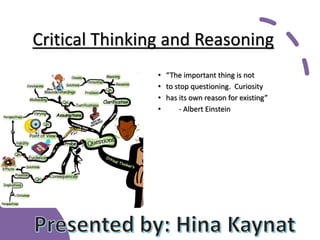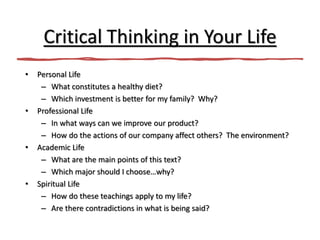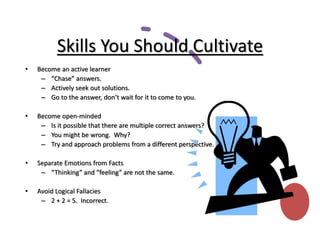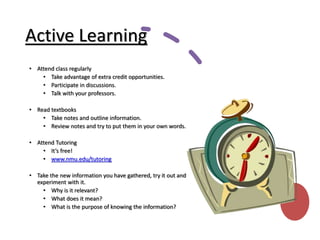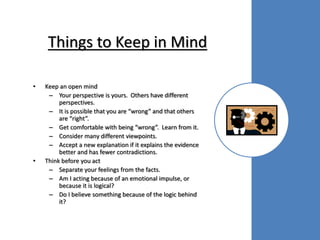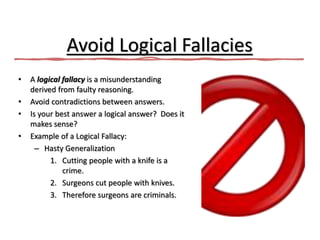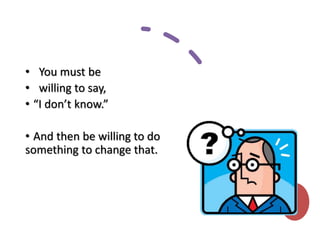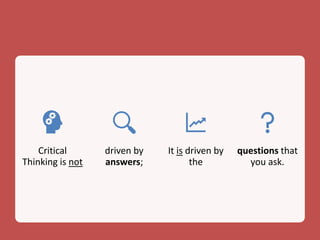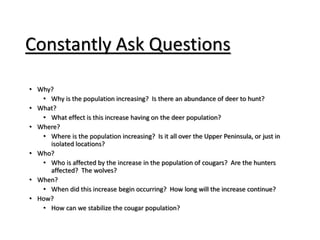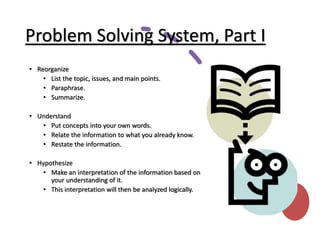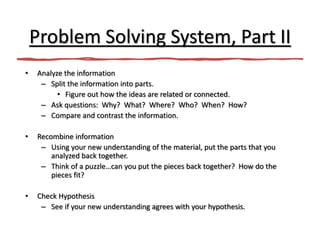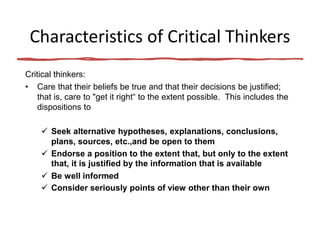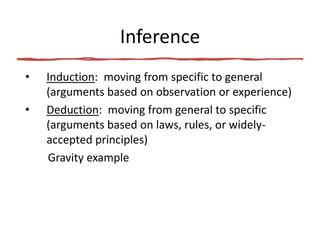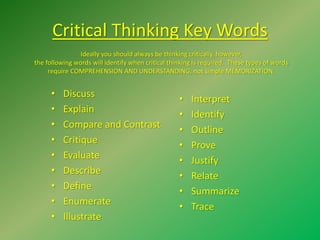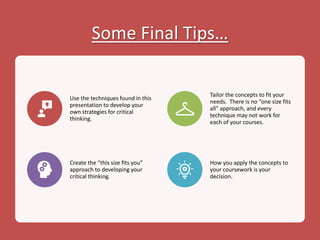This document discusses critical thinking and provides tips to develop critical thinking skills. It explains that critical thinking involves regularly questioning information, considering multiple perspectives, and separating emotions from facts. The document recommends cultivating skills like actively seeking answers, being open-minded, and avoiding logical fallacies. It also provides examples of applying critical thinking to personal, academic, and professional contexts. Overall, the document emphasizes developing habits of active learning, problem solving systematically, and constantly asking questions to improve critical thinking abilities.
